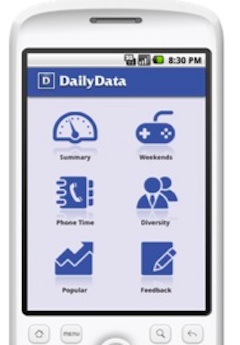Two new diabetes-management concepts worth watching

What happens when the same entrepreneurial spirit and creativity that fuels the design of popular video games and social-networking applications is applied to the development of products to help manage diabetes? It's a worthwhile idea, as sadly there is a large audience for such products--which could make a difference in improving the lives of many children and adults. Diabetes, after all, is an epidemic that's growing in the United States; currently, 25.8 million Americans have this chronic disease, and 79 million have "pre-diabetes," according to the Centers for Disease Control and Prevention.

Pharmaceutical company Sanofi-Aventis is now in the final stages of encouraging such creative product and service development in the realm of diabetes management. On September 30, it announced the two finalists of the Sanofi-Aventis Data Design Diabetes Innovation Challenge, a contest that kicked off in June to find an innovative way to harness data sets publicly available on healthdata.gov and use them in compelling mobile-phone applications. The idea is to educate people on preventing and managing diabetes via engaging apps. One finalist is Ginger.io, a maker of an app that analyzes a user's location and phone-communication tendencies to track patterns and offer suggestions for improving health-related behavior. The other is Chewable, a mobile-phone video game that helps diabetics understand how their food choices affect their health and tracks improvement in nutrition-related decisions.
Sanofi-Aventis created the contest to explore how "empathetic connection provided through human-centered design [can] meaningfully help people living with diabetes in the US," according to company materials describing the challenge.
A panel of seven judges ranging from engineers-turned-entrepreneurs (Jeff Hammerbacher, a former Facebook data engineer and the founder and chief scientist of software maker Cloudera, and Bit.ly chief scientist Hillary Mason), to diabetes experts (Diabetes Hands Foundation president Manny Hernandez and Sanofi-Aventis Vice President of Diabetes Dennis Urbaniak) to health-technology specialists (Todd Park, chief technology officer of the U.S. Department of Health and Human Services; Dr. Ida Sim, Director, UCSF Center for Clinical and Translational Informatics; and Sue Siegel, a trained biologist and general partner at venture capital firm MDV-Mohr Davidow Ventures).
The judges factored in live presentations that each of five semi-finalists, including the Ginger.io and Chewable teams, gave during a live Demo Day event in New York on September 15. The judges also took into consideration the teams' popularity among public voters who viewed videos of the demos online (there was one week of open voting from September 16-22). Most important, though, was figuring out how practical each of the teams' prototypes were and how likely they would scale.
Chewable was selected because it is "very promising for providing people with just enough actionable information when and where they need it to help guide them towards better decisions on what food to buy," said judge Ida Sim in a statement.
"One of the main challenges with health apps is data entry: it's more work for the user! As a patient, I am excited to see how Ginger.io bypasses this barrier passively acquiring and analyzing data around our behavior to help us out," said judge Manny Hernandez, also in a statement.
Moving forward, both Ginger.io and Chewable will receive $10,000 each to offer their prototypes to real-life diabetes patients over the course of a month and observe their reactions and results. By December 15, the seven judges will select a winner and award the selected team $100,000 to develop its idea from promising concept into a marketable product in the United States. Despite which one wins, both of these concepts--and the other three semi-finalists--are worth watching as new types of healthcare tools that use open data in fresh ways by applying design strategies usually used for entertainment or social networking.
Images: datadesigndiabetes.com, ginger.io, and getchewable.com
This post was originally published on Smartplanet.com
